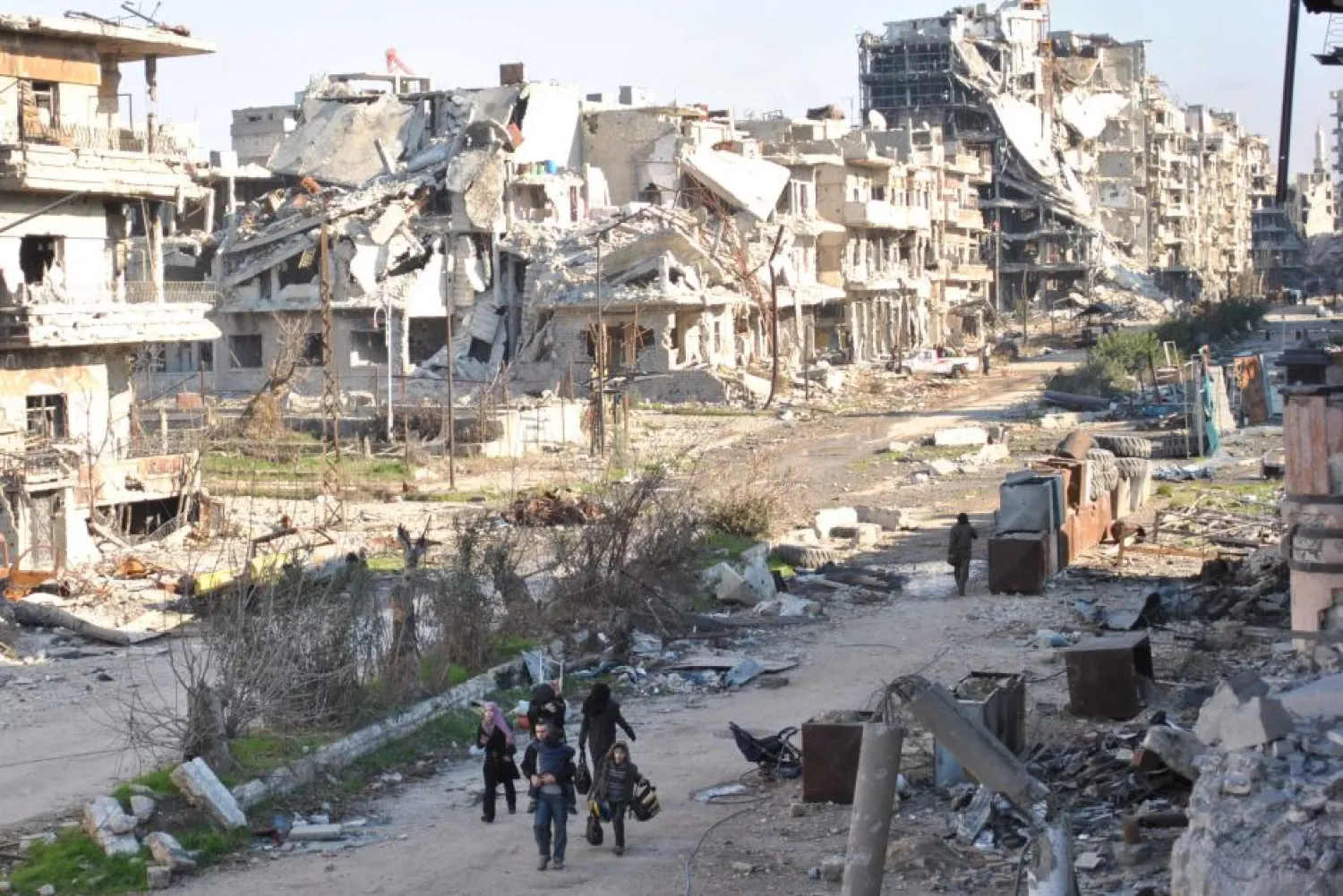For years, he used to sit at the cafe near his home. He would sit with his book, newspaper and coffee cup before leaving. In the early 1980s, all that remained was eluding time, being wary of weather changes, wisely spending his pension, listening to doctors’ orders and counting the number of friends he has left.
He does not like to delve into politics. He believes that it requires a great knowledge of the details, but this does not eliminate the fact that he harbors bad feelings towards former British Prime Minister Tony Blair. He said that Britain had committed enough mistakes throughout history and it does not need another one, like when it invaded Iraq. He stressed that his country does not have the right to topple a leader and appoint another. Perhaps the United Nations could play such a role in times of great need. Britain does not have the right to overthrow a regime and then withdraw, leaving behind a war that does not spare any human or building from its destruction.
Recently a new woe was added to the old ones. The man participated in the referendum on leaving the European Union. He cast a vote for remaining part of Europe. It never occurred to him that the majority of Britons would choose divorce. The result devastated him.
He said that the Britons committed great treason against the major dream called the European house. He noted that the dream was stabbed by people who do not have a memory and who have forgotten that this dream came true after a horrific tragedy that the continent witnessed and bloodied the whole world with it.
He said that this is a very serious issue, asking: Can such a major accomplishment be placed in the hands of a generation whose feelings can be manipulated through social media? He warned that the manipulation by populists, who are chanting flashy slogans, could lead the world on adventures that were long thought to be history.
He stressed that he is an honest Briton, who is proud of his roots. This loyalty is not directed against others, but it is European as much as it is British. He said that he is happy because he has a grandson working in Spain and another working in Belgium. He considers that the presence of other Europeans in Britain is natural and a source of prosperity and stability. He revealed that the European dream enriched him and offered him opportunities of cooperation to resolve problems. The decision to exit Europe diminished this dream and the room for maneuvering. It also restored the fear of returning to cages where bruised nationalism and old hatred thrive.
He recounted to me how, when he was young, German planes had pounced on Britain, how cities after the war looked like fields of orphans, widows, rubble and sad stories. He said that the beasts of history were awakened in that period and maps were ripped up, capitals were destroyed and nothing remained but the stench of fear, death, defiance, sweat and tears.
The European dream was born out of these horrors. The Europeans decided that the time had come to bury the hatred of history and its knives. They took a major decision whose essence was thinking of the future of their grandchildren instead of continuing in waging the wars of their ancestors. British-French and grueling German-French wars were now subjects left to historians. The Europeans decided to save their children and grandchildren from Hitler and his kind.
Institutions are the secret of the European house. These institutions guarantee, punish, plan and preempt. They have an independent judiciary, modern management and freedom of expression. These institutions prevent Europe from falling into wars similar to the ones of the past. The Yugoslavian explosion was an exception. The European institutions allowed the continent to contain the world war-like fallout of the collapse of Soviet empire.
I listened to my British friend and thought about the terrible Middle East, specifically the position of the Arabs and the many human and financial losses that the Arab countries have suffered that are equal to a world war. The storms have exposed us. He have countries that are prone to fragmentation, peoples ready for displacement, intifadas that can be aborted and armies with weakening loyalty We have women who are ready to be widowed and children who are destined to be orphaned. Only the institutions can save us from this long stay in hell.
When will our people wake up? Where are our universities? Where are our writers and pioneers? It is as if we enjoy living in the dark like bats. We want development, progress and dignity. We want cities, universities and job opportunities. We want institutions that plan and hold accountability. We are fed up with standing on the margins of history, We want to forge ahead into the future and save our grandchildren from the fate of our ancestors.
We will not be able to leave the terrible Middle East if we keep holding on to the daggers, spite and intolerance of our ancestors. We want other ideas that are open to this age and open to tomorrow. We want to be a normal and respectable nation. We will not be able to leave the age of Arab ruin unless we learn from out catastrophe as Europe learned from its own. It is not enough to take off the clothes of your grandfather, but you should put the thoughts you inherited to the test of the age. You will not head to the future if you do not ease the weight of intolerance and darkness.














